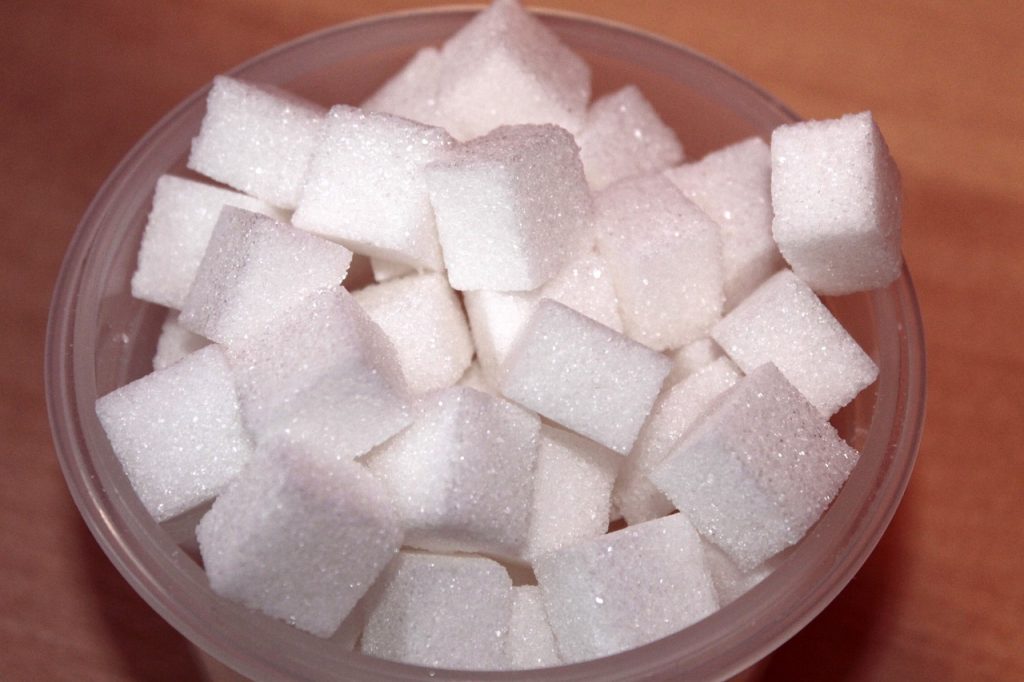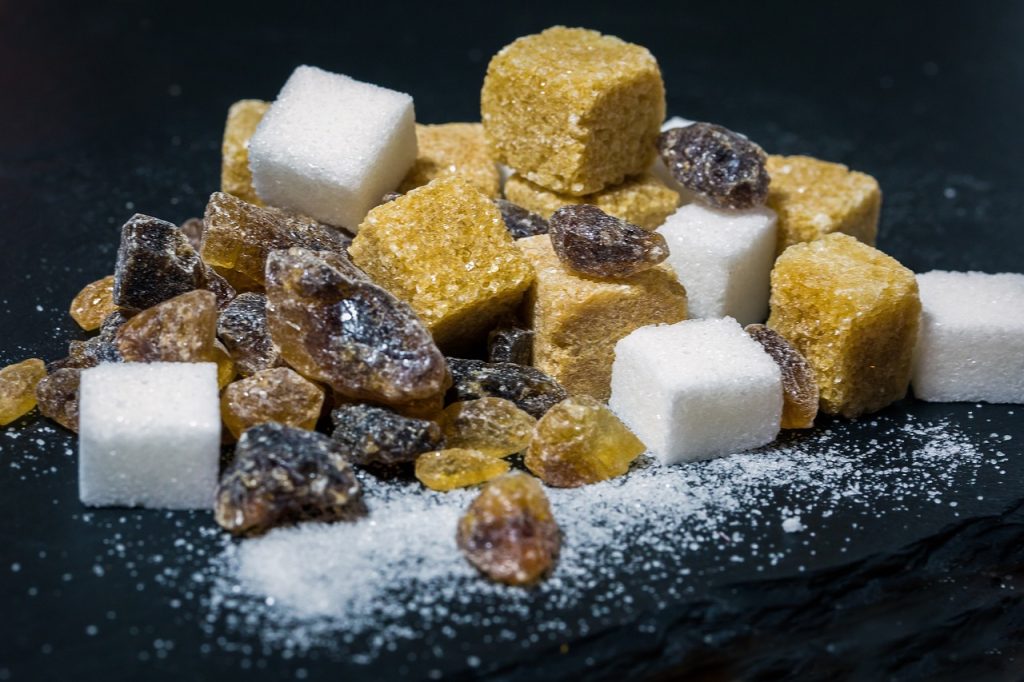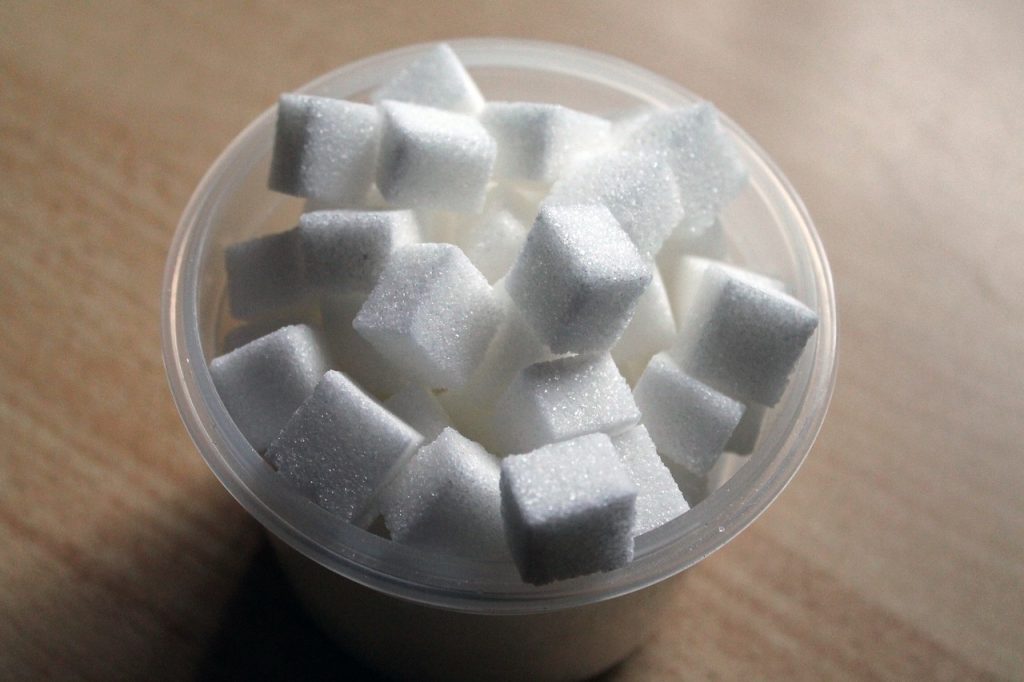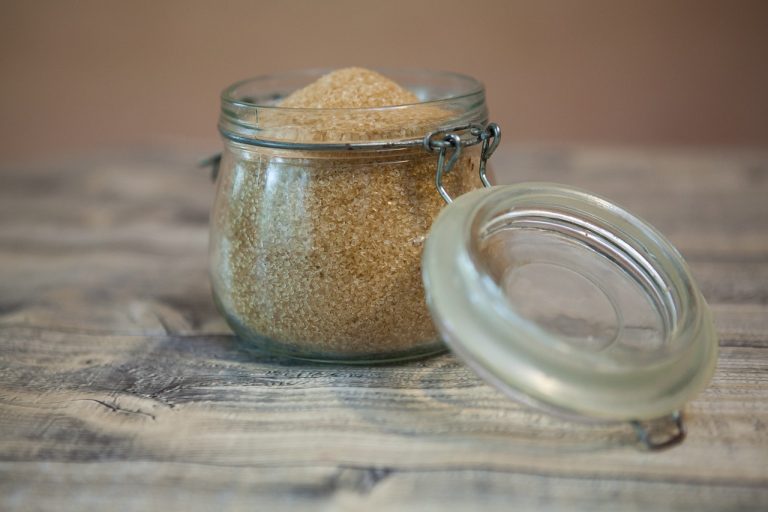Is Erythritol Low FODMAP? Your Guide to Digestive-Friendly Sweeteners
If you’re following a low FODMAP diet, you may be wondering – is erythritol low FODMAP sweetener for you? Erythritol is a sugar alcohol that is used as a sugar substitute in many low-calorie and sugar-free products. But is erythritol low FODMAP? The answer is yes, erythritol is generally considered low FODMAP.
If you’re following a low FODMAP diet, you don’t need to avoid erythritol. However, it’s important to note that some people may still experience digestive symptoms after consuming erythritol, especially if consumed in large amounts.
As with any food or ingredient, it’s best to pay attention to your own body and how it reacts to erythritol. If you find that erythritol causes digestive symptoms for you, it may be best to avoid it or consume it in smaller amounts.
What Is Erythritol? Is Erythritol Low FODMAP?

Erythritol is a sugar alcohol that is commonly used as a sugar substitute in many low-calorie and sugar-free products. Here’s what you need to know about erythritol and its FODMAP content:
Erythritol is a low FODMAP sweetener. It is a polyol that is not absorbed well by the body, which means it does not contribute to the FODMAP load in your diet. This makes it a great option for those following a low FODMAP diet.
Benefits of Erythritol
Erythritol is a natural sweetener. It is found naturally in some fruits and fermented foods, but it is also produced commercially by fermenting glucose with yeast or fungi. It has a sweet taste like halva but does not have the same aftertaste as other sugar alcohols. It is 60–70% as sweet as table sugar, making it a great substitute for sugar in many recipes.
It is low in calories and has only 0.2 calories per gram, which is 95% less than sugar. This makes it a great option for those looking to reduce their calorie intake.
Erythritol is safe for most people to consume. It is generally well-tolerated and does not cause the digestive issues that other sugar alcohols can cause, such as bloating and diarrhea.
Erythritol Chemical Structure
Erythritol is a four-carbon sugar alcohol, also known as a polyol. It is naturally found in some fruits and fermented foods, but is usually produced commercially by fermenting glucose with yeast or other microorganisms.
Erythritol has a chemical structure that is different from other sugar alcohols such as sorbitol, mannitol, and xylitol. Unlike these other polyols, erythritol is not metabolized in the body and is excreted unchanged in the urine. This means that erythritol does not contribute calories or raise blood sugar levels.
Digestion Process
Since erythritol is not metabolized in the body, it is considered low FODMAP. It is not broken down by the enzymes in the small intestine and is instead absorbed directly into the bloodstream.
This means that erythritol does not cause the same digestive symptoms as other FODMAPs, such as bloating, gas, and diarrhea. Erythritol is also less likely to cause tooth decay than other sweeteners because it cannot be metabolized by oral bacteria.
Here is a nutrition table for erythritol:
| Nutrient | Amount per Serving |
|---|---|
| Calories | 0 |
| Total Fat | 0g |
| Sodium | 0mg |
| Total Carbohydrate | 4g |
| Sugars | 0g |
| Erythritol | 4g |
| Protein | 0g |
It is important to note that erythritol is not always used alone as a sweetener. It is often combined with other sweeteners such as stevia or monk fruit extract to provide a more balanced taste. If you are following a low FODMAP diet, be sure to check the labels of packaged foods and beverages for other FODMAPs.
Also Read: Is Balsamic Vinegar Low FODMAP
Sugar Content
Here is a table for Glucose, Fructose and Excess Fructose per serving suggestion:
| Nutrient | Amount per Serving |
|---|---|
| Glucose | 0g |
| Fructose | 0g |
| Excess Fructose | 0g |
Also Read: Is Asparagus Low FODMAP
Benefits of Low FODMAP Diet
The low FODMAP diet is an evidence-based dietary approach that restricts the intake of high FODMAP foods for a certain period, usually 2-6 weeks, and then gradually reintroduces them in a systematic way to identify the individual’s trigger foods. The goal is to reduce the FODMAP load in the gut and alleviate the symptoms without compromising the nutritional adequacy of the diet.
Here are some of the potential benefits of the low FODMAP diet:
Symptom relief
Studies have shown that the low FODMAP diet can significantly reduce the severity and frequency of IBS symptoms in up to 75% of patients, compared to a regular diet or placebo. The improvement can be seen in both diarrhea-predominant and constipation-predominant IBS subtypes. The symptom relief may vary depending on the individual’s adherence, duration, and personalization of the diet.
Quality of life
IBS can have a negative impact on the quality of life, including social, emotional, and physical aspects. The low FODMAP diet has been reported to improve the overall well-being and satisfaction of patients with IBS, as well as their sleep, energy, and mood.
Gut microbiota
The FODMAPs can affect the composition and function of the gut microbiota, which plays a crucial role in the digestive and immune systems.
The low FODMAP diet may modulate the gut microbiota by reducing the substrate for fermentation, increasing the abundance of beneficial bacteria, and restoring the microbial diversity and stability. However, more research is needed to confirm these effects and their long-term consequences.
Other conditions
The low FODMAP diet may also benefit other gastrointestinal conditions that share similar symptoms with IBS, such as inflammatory bowel disease (IBD), small intestinal bacterial overgrowth (SIBO), and gastroesophageal reflux disease (GERD). However, the diet should be used under the supervision of a healthcare professional and tailored to the individual’s needs and goals.
Potential Side Effects of Erythritol

Erythritol is a sugar alcohol that is commonly used as a low-calorie sweetener. It is often used as a substitute for sugar in low FODMAP diets due to its low FODMAP content. While erythritol is generally considered safe, it may cause some side effects in some people.
Digestive Issues
Erythritol can cause digestive issues such as bloating, gas, and diarrhea, especially when consumed in large amounts. This is because erythritol is not completely absorbed by the body and can ferment in the large intestine, leading to digestive discomfort.
Headaches
Some people may experience headaches after consuming erythritol. This may be due to the fact that erythritol can cause changes in blood sugar levels, which can trigger headaches in some people.
Allergic Reactions
Although rare, some people may be allergic to erythritol. Symptoms of an allergic reaction may include hives, itching, swelling, and difficulty breathing. If you experience any of these symptoms after consuming erythritol, seek medical attention immediately.
Dental Issues
Erythritol is less likely to cause dental issues than other sweeteners, but it can still cause some problems if consumed in large amounts. Like other sweeteners, erythritol can promote the growth of bacteria in the mouth, which can lead to dental decay over time.
Also Read: Are Snow Peas Low FODMAP
Conclusion
Several studies have shown that erythritol has a low FODMAP content, which means that it is unlikely to cause digestive discomfort or exacerbate symptoms of irritable bowel syndrome (IBS) in most people. However, it is important to note that everyone’s tolerance to FODMAPs is different, and some people may still experience symptoms when consuming erythritol.
If you are following a low FODMAP diet, it is recommended that you consume erythritol in moderation and monitor your symptoms carefully. You may also want to try other low FODMAP sweeteners, such as stevia or monk fruit, to see if they work better for you.
Overall, erythritol can be a useful tool in managing symptoms of IBS and following a low FODMAP diet. However, it is important to remember that everyone’s digestive system is unique, and what works for one person may not work for another. By listening to your body and being mindful of your diet, you can find the right balance of foods and sweeteners that work best for you.
Frequently Asked Questions

What are some low FODMAP sweeteners?
Erythritol is one sweetener that is considered low FODMAP, but there are others as well. Stevia is another sweetener that is low FODMAP. It’s made from the leaves of the Stevia rebaudiana plant and is much sweeter than sugar, so you only need a small amount. It’s available in liquid and powder forms.
Monk fruit extract is also low FODMAP and is made from the fruit of the monk fruit plant. It’s about 150-200 times sweeter than sugar, so again, you only need a small amount. It’s available in liquid and powder form.
Other low FODMAP sweeteners include glucose syrup, dextrose, and maple syrup (in small amounts). However, honey, agave syrup, and high fructose corn syrup are high in FODMAPs and should be avoided on a low FODMAP diet.
Remember, even though these sweeteners are low FODMAP, they should still be used in moderation. Too much of any sweetener can cause digestive issues.

Jane Porter is an architect that like many others, had her life significantly impacted by digestive problems for many year. Trying to find a solution to her digestive problem, she came across the low FODMAP diet, a scientifically-backed approach designed to alleviate symptoms associated with irritable bowel syndrome (IBS) and other digestive disorders.




